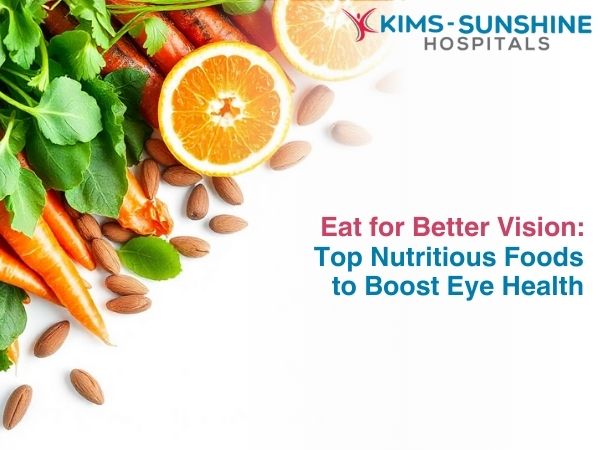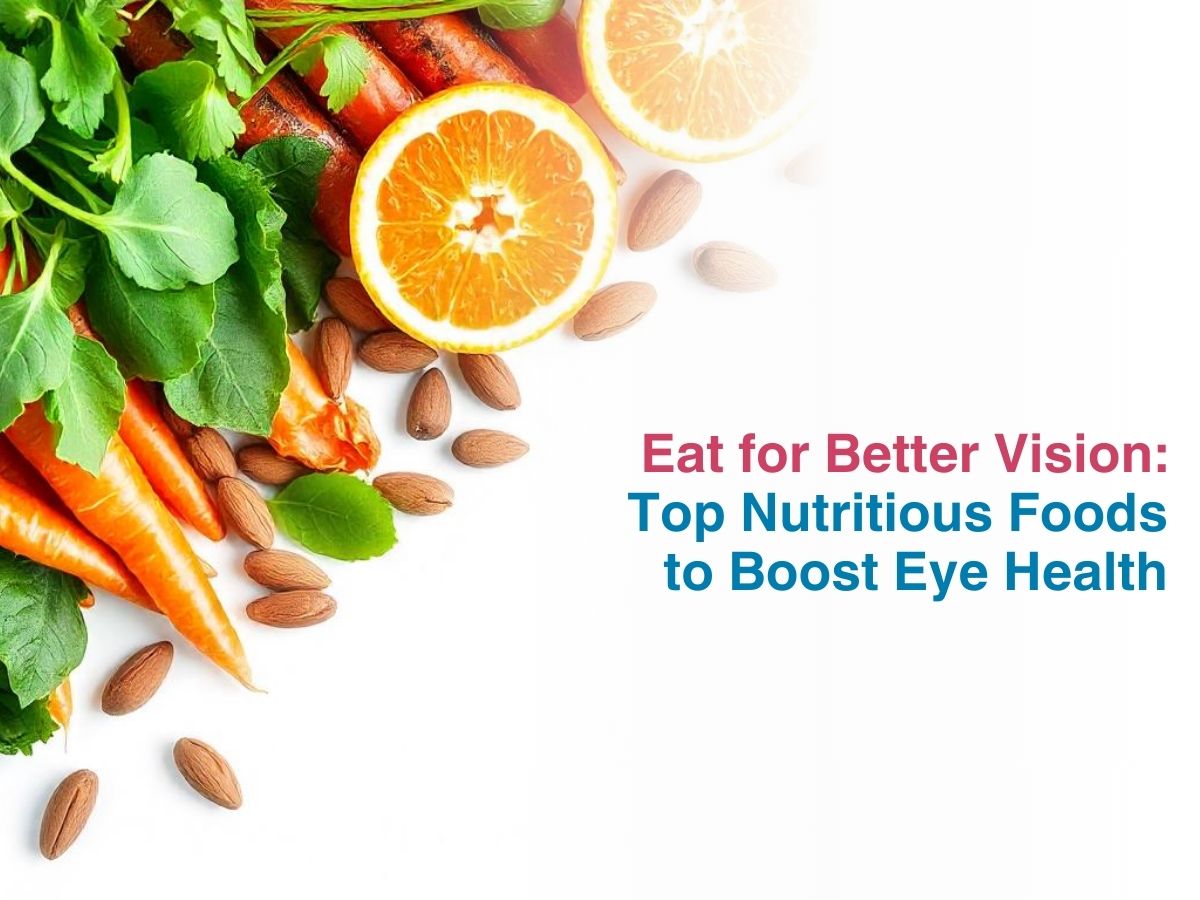
Eat for Better Vision: Top Nutritious Foods to Boost Eye Health
 Our eyes are literally our high definition window to the world and we get to see so much with them- colours, details, textures, height, depth, distance, sparkles, brightness etc. It is like we have our own super powered camera working all the time, with our brain continuously taking notes and making important memories from it all. Vision related problems may show up due to ageing and other medical conditions like diabetes or hypertension. So, let us see if an eye-health friendly diet is good for you in the long run or not, below!
Our eyes are literally our high definition window to the world and we get to see so much with them- colours, details, textures, height, depth, distance, sparkles, brightness etc. It is like we have our own super powered camera working all the time, with our brain continuously taking notes and making important memories from it all. Vision related problems may show up due to ageing and other medical conditions like diabetes or hypertension. So, let us see if an eye-health friendly diet is good for you in the long run or not, below!
How To Improve Vision With Diet And Nutrition
Our eyes have a bunch of muscles and highly specialised cells that function like a camera of sorts and help us see everything in great detail. Any issues with vision can mostly be corrected with surgery or using prescription spectacles. Apart from such seemingly minor problems, the eyes continue to function well into old age for most individuals. You need to eat right, for your eyes to work well. So, yes, there is a distinct link between vision and nutrition. The food you eat needs to contain a lot of variety everyday- different kinds of fruits, vegetables, whole grains, millets, cereals, pulses and enough water and soluble fibre for good health. But, this does not mean that you can stop wearing your contact lenses or glasses, just by eating right – because food CANNOT help correct refractive errors.
Superfoods For Protecting Vision And Eye Health
Foods that are rich in minerals, vitamins and antioxidants are generally considered to be superfoods. These are the ones you should be eating everyday, for better health and vision-
- Vitamin C– Citrus fruits, red, yellow and green peppers, tomatoes, berries keep your retinal cells healthy, as they are rich in antioxidants. These can help regulate ageing related mechanisms.
- Vitamin A- Vitamin A is the crucial vitamin which helps the retina convert light into distinct images that our brain can process, so we can ‘see’ anything. But carrots are NOT great sources of this vitamin, contrary to popular belief. Some Vitamin A rich foods include orange and yellow coloured fruits and vegetables, which are excellent sources of beta-carotenoids- like carrots, squash, pumpkins, yellow capsicum, citrus fruits, sweet potatoes, musk melons and apricots, that are all easily available when in season. So stock up on the goodness before they go away. This form of Vitamin A helps with night vision.
- Lutein and zeaxanthin are a specific family of carotenoids (Vitamin A) found in greens, dairy and eggs. They help in preventing macular degeneration – by helping protect the macula. This is the region we use to notice all the little but crucial details, everyday. Some of our favourite greens include- methi, moringa, amaranth, mustard, spinach, carrot and radish greens, and other indigenous varieties that you can find in the local markets.
- Vitamin E– This vitamin functions as an antioxidant and helps prevent cellular damage. Normally found in all plant based oils and seeds, nuts and nut butters, fruits like mangoes, kiwi, apples, avocados and veggies like pumpkin, greens, asparagus, squash, red peppers, fish, dairy and meat, this vitamin is also important for good coordination and the nerves. Severe deficiency in very young infants can cause anaemia in extreme cases.
- Omega-3 fatty acids like DHA and EPA are found in fatty fish like tuna, salmon and trout. Low levels of these fatty acids can cause dry eyes. They also help protect your eyes from macular degeneration and glaucoma.
- Minerals are also really important for you. Some of them are zinc- which are siphoned from the liver to the retina- where melanin pigment is made. The pigment is mainly protective in function. Meat is a good source if you don’t like your veggies and fruits. But beans, lentils and eggs can help you too.
- Water is often ignored, but let us not forget how crucial it is to keep your eyes feeling moist and healthy. Dry eyes can feel itchy, red and leave you feeling irritated.
Conclusion
These were some diet tips to prevent age related vision loss. The ageing of the macular region in the retina is especially prominent, as you grow older – due to high amounts of DNA damage stemming from production of highly damaging free radicals- all culminating in varying degrees of oxidative stress related cellular damage. A well designed diet can help combat these adverse effects due to the presence of antioxidants. With advancing age, it makes sense to pay more attention to your health and routine- so make that change by playing it safe with your diet, first!
Frequently Asked Questions
Which vitamins and minerals are essential for eye health?
How does omega-3 fatty acid intake benefit vision?
Can eating leafy greens really improve eye health?
How do antioxidants protect the eyes from damage?
Are there any foods that negatively affect eye health?

Dr. S.T.S. Pridhu Vyas
MBBS (Osm) MS (Ophthalmology) (SDEH), FVRS, FAEH
Head – Department of Ophthalmology, Chief Phaco Surgeon and Vitreo-Retina Surgeon






